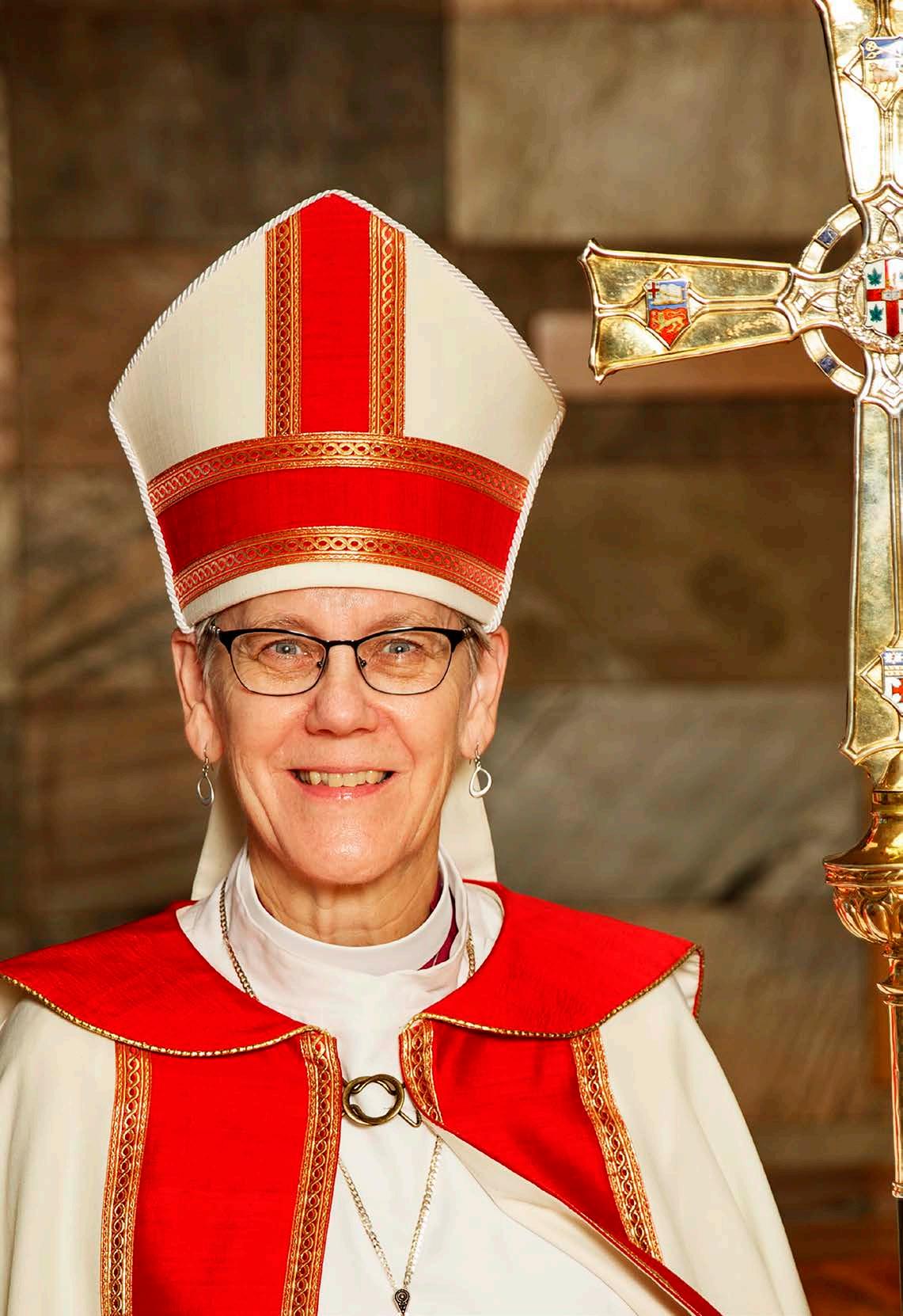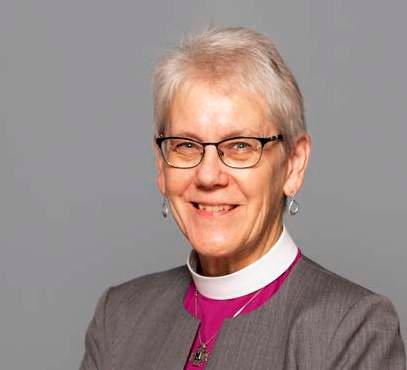
5 minute read
Our Gift for a Divided World
by USPG
THIS FEATURE WAS WRITTEN BEFORE THE LAMBETH CONFERENCE WAS POSTPONED.
One senior figure is convinced the Church has something unique to offer to an increasingly divided world - and it’s not just the gospel.
‘The Communion is a collection of churches trying to model what it is to live together with difference,’ says Archbishop Linda Nicholls, Primate of the Anglican Church of Canada. ‘I think that is one of our gifts. And we have that gift to share. We don’t agree on everything, but we recognise family in each other, and truly at this point in the life of the world, we desperately need some recognition of that.’
This chimes with the Archbishop of Canterbury’s prayer for Lambeth – that it would reinvigorate the Communion to bring the transforming love of Jesus to every level of society across the world.
More than one thousand bishops would have travelled to the UK for the 15th Lambeth Conference. The event was open to every eligible bishop and their spouse from the more than 165 countries which make up the Communion. Each was personally invited by the Archbishop of Canterbury, Justin Welby. The theme was to be “God’s Church for God’s World: walking, listening and witnessing together”.
ISSUE 1 2020
Archbishop Linda Nicholls Credit: Michael Hudson/ Anglican Church of Canada

Archbishop Linda was installed as Primate of Canada in July 2019, having served as Bishop of Huron. An increasingly hectic schedule now offers little time for her favourite pursuits of choral singing, walking and canoeing in the Canadian wilderness. But her diary has always been busy. Since her ordination in the mid-80s, her ministry has extended well beyond Canada: she is a member of the third Anglican Roman Catholic International Commission and is also on the Primates’ Task Group set up to explore how the Communion restores and maintains relationships in the face of differing opinions.
Archbishop Linda last attended Lambeth in 2008. She has mixed memories:
‘The moral and iconic power of that gathering in Canterbury cathedral – I don’t think you can underestimate that,’ she says. ‘There were moments of glory and joy and being able to celebrate.’ She recalls the sheer delight of men and women from the Solomon Islands who “danced” the gospel at Canterbury Cathedral. ‘And then have the same sisters and brothers carry the names of the martyrs up to the shrine – I don’t think there was a dry eye in the place.’ ‘There were really painful moments too: trying to talk about our Canadian context… about gay and lesbian people in our church to people (from Sudan) who were living in the middle of a war.’
‘In 2008 there was still a lot of fear that the Anglican Communion could disappear. I think we are proving a resilience. We are not proving that we have resolved things, and I am beginning to think that probably isn’t where we are going to be... and maybe we never will.’
Archbishop Linda is glowing about Dr Robert Heaney’s book, The Promise of Anglicanism. She says it is liberating to realise that Anglicanism is actually founded in contestation. ‘It’s part of our nature ... the question is about how we listen to one another in the middle of difference deeply enough to honour difference and to hold together around the core things.’ She acknowledges that the debate about human sexuality is not resolved and will be discussed at Lambeth (now planned for 2021) and she hopes the conference can address other important concerns.
‘Every place in the Communion is facing change in its climate because of human intervention. And it’s important to be able to hear from each other. For example, what does it mean when the oceans are rising and your island is falling into the sea like it is on the east coast of Canada.’
Archbishop Linda links climate change to other major problems which the Church is trying to tackle. ‘Human trafficking is a huge issue, particularly in Canada for indigenous women and girls. We still haven’t grappled with that sufficiently. Human trafficking touches the whole Anglican Communion as receivers, as senders, as people who take advantage of migrant workers.’
‘Another concern is dismantling racism. It is at the heart of so many of the issues with our indigenous people. I’m also aware of it through clergy from other parts of the world who have come to Canada and are touched by racism. But this is not about individuals being racist. The much harder question is how do our systems embed racism in how we act and how we think?’
The Lambeth Conference programme is always busy. There is usually a quiet retreat at the beginning but then the days fill with Bible Studies, plenary sessions and seminars. Archbishop Linda has some advice on how to make the most of it: ‘Meet and talk to people who are not like you and who you might think you disagree with profoundly. Listen to them. People must come with an expectation that they are going to be challenged but be open to what God is doing in a new way. You don’t have to agree with everybody that you meet, but you do need to see them as a sister or brother in Christ.’
The Lambeth Conference coincides with another recurring international event – the Olympic Games which has now also been postponed to 2021. But, despite the competition for global attention, Archbishop Linda believes the Communion should make the world sit up and take notice.
‘We didn’t make statements in 2008 but I hope we say something together this time… (for example) that the whole Anglican Communion is united in its commitment to working on climate change.’
‘We face becoming increasingly irrelevant to the rest of the world … but I hope that the whole Anglican Communion speaking together would be a visible sign – particularly because people have only seen us publicly divided for so long. To see the whole Communion united in speaking on a topic like that would be very powerful.’










